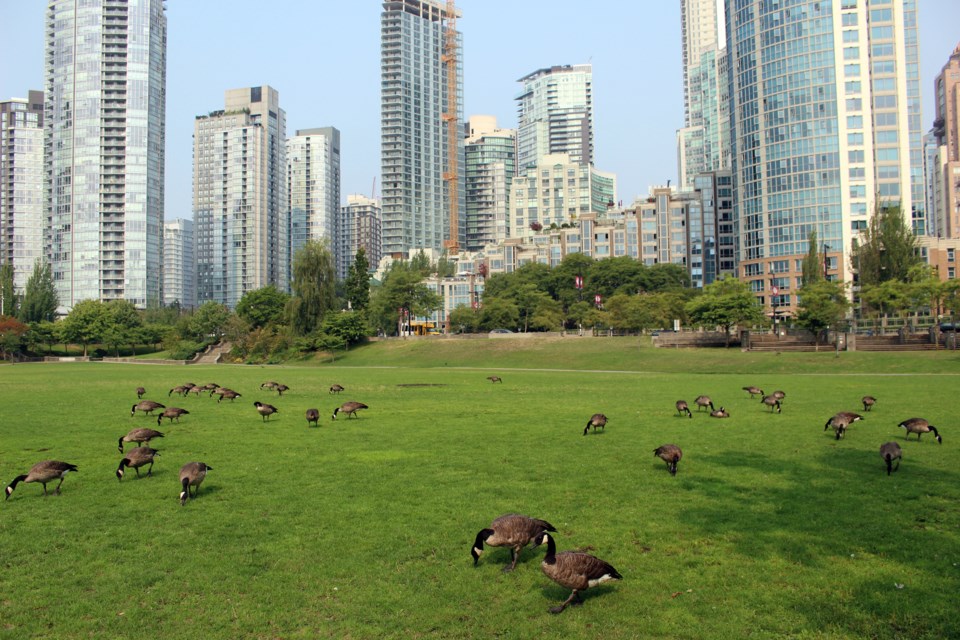Canada Geese, the emblematic bird of the nation, are everywhere—on coinage, promotional materials, and in the minds of people who have never visited when you ask them what they know about Canada.
The birds are also everywhere in Vancouver, especially in park spaces. Visitors to any Vancouver park this summer have most likely noticed the large amount of goose feces in the grass and the surrounding paved areas.
The animals have a very inefficient digestive system compared to other animals explains a spokesperson for the City of Vancouver. They produce more excrement for their size and the amount of food they eat than most other species and can defecate on average every 12 minutes when they’re eating and unfortunately they gather in parks to moult and feed.
This contributes to the huge amount of muck locals have to wade through what feels like year-round since not all of the migratory birds are flying south for the winter anymore.
Their favourite places to gather are areas where grassy clearings meet the shoreline like Stanley Park, English Bay and Sunset Beach, Trout Lake, along False Creek, and at VanDusen Botanical Garden.
The City of Vancouver says, “there is no official protocol for measuring the amount of fecal matter produced by Canada geese in public parks.” However, the spokesperson explains that “waters are monitored by Vancouver Coastal Health. They provide regular water quality reports which inform the Park Board’s decisions to shut down beaches/advise against swimming as needed.”
They don't keep track of the levels on land because "so long as people practice good hygiene by washing their hands after coming into contact with any goose droppings, it does not present a public health risk."
However, they continue to say the city is "well aware of the impact Canada geese have on the city’s public spaces" and recommend dog owners keep a close eye on their pets to prevent them from contracting illnesses from nosing around in the grass.
Staff clean hot spot areas of droppings on a scheduled rotation and work to deter geese from congregating in high conflict spaces like wading pools.
Goose problems more than just poop
With the sheer number of geese living here year-round, the problems go beyond excrement.
Canada geese become aggressive during mating season. They eat newly seeded fields and lawns stunting the growth of the young grass. They dig holes around sprinkler heads with their beaks in an attempt to drink the water which causes damage to irrigation systems. And in addition to the pollution, they leave on beaches, picnic areas, sports fields, and memorial benches the city says that it has become a slipping hazard.
"The Park Board’s population control efforts are focused on addling and educating residents on ways to discourage numbers multiplying such as asking people to avoid feeding them," says the spokesperson.
Feeding geese can incur a fine of up to $500 and the goose egg addling program was introduced as a method of wildlife management back in April. The program saw the city replacing viable eggs with eggs that were pre-treated so they wouldn't hatch. It was an approach supported by the BC SPCA and PETA and permitted by Environment Canada under the Migratory Birds Convention Act.
"We’re also working with wildlife biologists on continued monitoring of the population’s growth and distribution through a study that will inform the development of an Action Plan to consider all options, including what has been effective in other jurisdictions. This Action Plan will be presented to the Park Board in early 2023," adds the spokesperson.



